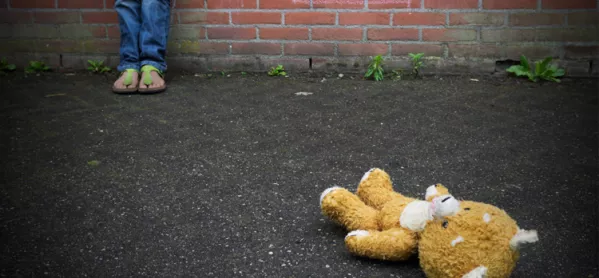- Home
- ‘Let’s applaud the Kent heads for standing against abuse’
‘Let’s applaud the Kent heads for standing against abuse’

Children who have been removed from their families and into the care of the state usually top the priority list for school admissions – a “looked-after” child pretty much trumps all other categories of need when it comes to who gets a school place.
It's therefore likely that the Kent headteachers who have told the government privately, and then on the record, and then earlier this week on the Today programme, that they won’t have any more “looked-after” children in their schools will take a pasting. They may even be risking their jobs.
I say, bravo. Kent heads have been warning for months that the children who have been shipped from one local authority area to live in the county's deprived seaside towns are at a high risk of being sexually exploited.
Headteachers, however outspoken they might be in private, tend to be far less vocal in public. Even the vicious real-terms cuts to funding that have seen schools stripped of support staff and struggling to pay for pencils haven’t provoked individual heads to take much of a stand. So when all the heads in an academy chain warn we’re risking another Rochdale-scale disaster because of the actions of these children’s corporate parents – the state – it’s time to take them seriously.
The ferocious rate at which children are now being taken into care has led to major problems in child protection, and many not familiar with the crisis may wonder why on earth highly vulnerable children are shipped off to the most wretched edges of the country. Easy.
Where there is poverty there are (understandably) individuals who need and rely on the fees paid to foster carers. And yet there’s also a national shortage of people prepared to offer a child a home. So against the letter of legislation, which says that children in care should be placed in or as near as possible to their own communities, councils – many of them in Greater London – now send large numbers of children to live in privately run residential homes in Kent’s crumbling coastal towns.
Vulnerable children sent to crumbling towns
Those facilities are situated in deprived areas because the private companies that make a profit out of families’ dysfunction and misery are able to buy up cheap properties there. This means their overheads are low and they can maximise the money they rake in for supposedly "looking after" these children.
There are clear parallels with the Winterbourne View scandal, in which people with learning disabilities were sent hundreds of miles away from their homes and separated from family and friends with no regard for their safety. Isolated and disempowered, the residents were subjected to horrifying abuse.
This time, instead of vulnerable adults, it’s children. All of whom will have already suffered shocking emotional and physical harm, often for years. Packing them off to wherever will take them is a practice rooted in the marketisation of child protection where “value for money” is the overriding criteria for a public service. When you apply that logic to children in care, bad things happen.
By definition, their parents are restricted from seeing them. They’ve lost their relationships with their teachers, and with their friends. Their social worker might make the odd visit, but children’s services everywhere are overstretched. It’s a day out of the office to get from London to east Kent and back, so that oversight is often sketchy.
The risk of sexual abuse
These children end up entirely alone. It's no wonder they crave love and attention, whoever is offering it: their heightened vulnerability to sexual exploitation is not just a theoretical risk – after Rochdale and numerous other scandals, the particular danger faced by children in care is predictable and understood.
Every single day at their school gates, Kent's heads are watching children who have been stripped of all emotional stability as they’ve been moved away from their siblings, friends and wider family. And they watch these pupils being targeted by sexual predators who know just how needy and vulnerable they are.
Even if there wasn’t a high risk of child sexual exploitation – put plainly, repeated rapes, terrifying intimidation and physical assaults upon a minor – the costs to children of sending them far from home would be immense. With it, they are incalculable. We should cheer these headteachers, who are standing up for these most vulnerable children precisely by turning them away. They should be lauded, not blamed. Though it might seem harsh to refuse these kids a place at their schools, the headteachers are taking a huge professional risk to protect children whom the state has effectively warehoused out of sight, and put out of mind.
It should not be left to headteachers to teach children’s services – and the government – a lesson. Ultimately, we need to support families to reduce the number of children in care, stop pushing those kids who need the most support to the farthest fringes of the country and put a stop to the profit motive in “looking after” our society’s most damaged children.
If another Rochdale happens in Kent, it will be on our watch. And we will all be to blame.
Louise Tickle is a freelance journalist
Keep reading for just £1 per month
You've reached your limit of free articles this month. Subscribe for £1 per month for three months and get:
- Unlimited access to all Tes magazine content
- Exclusive subscriber-only stories
- Award-winning email newsletters

